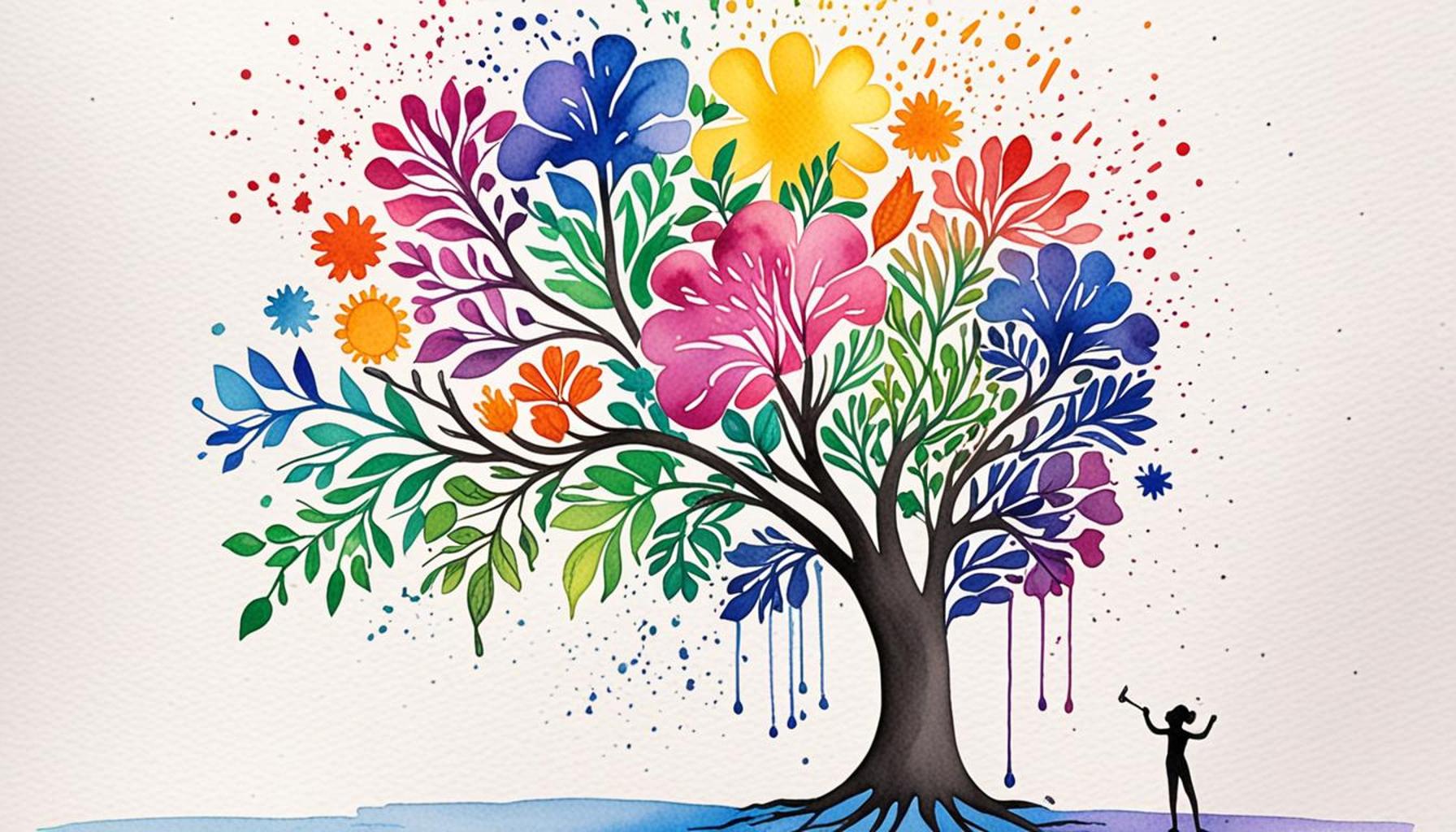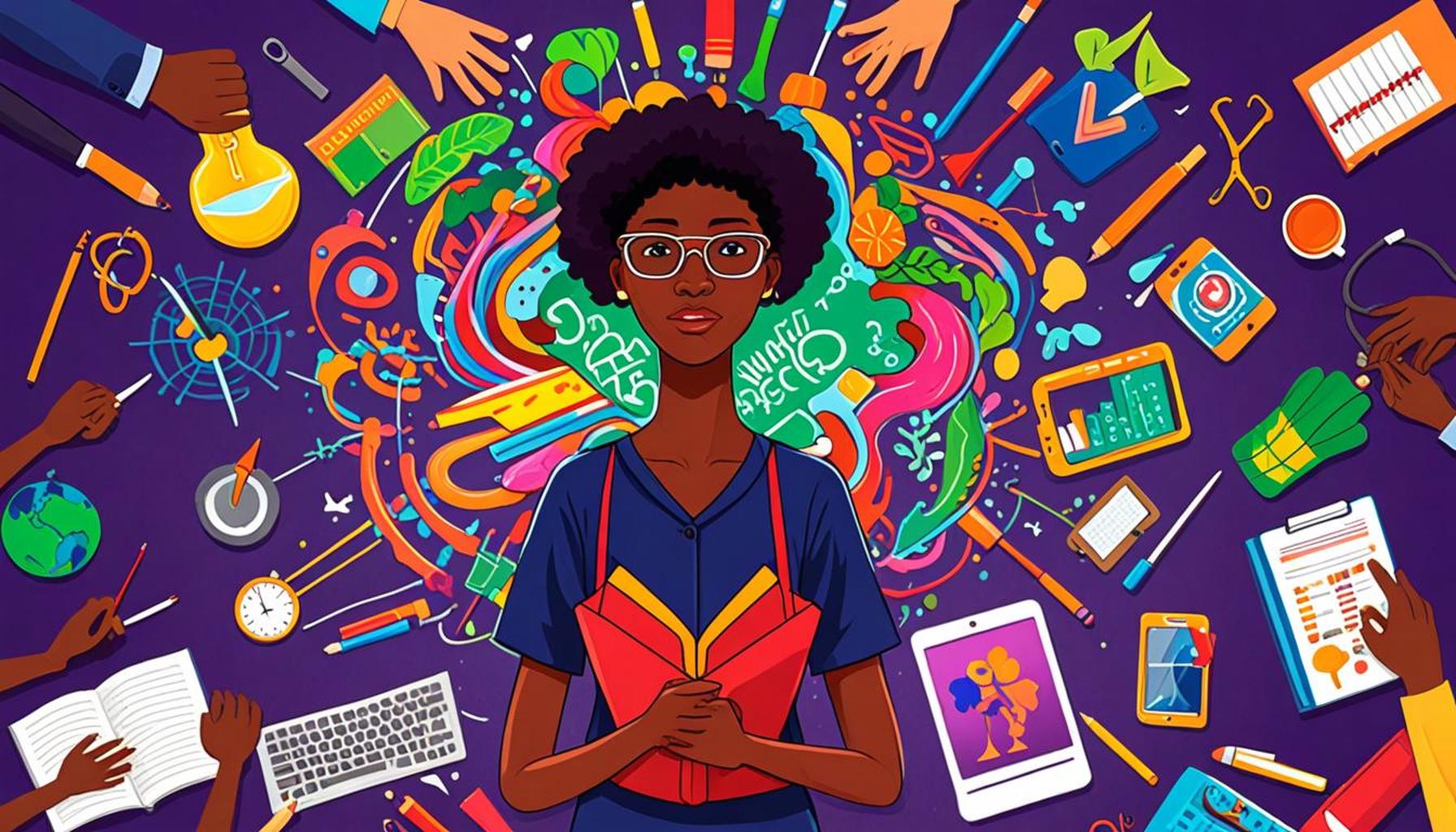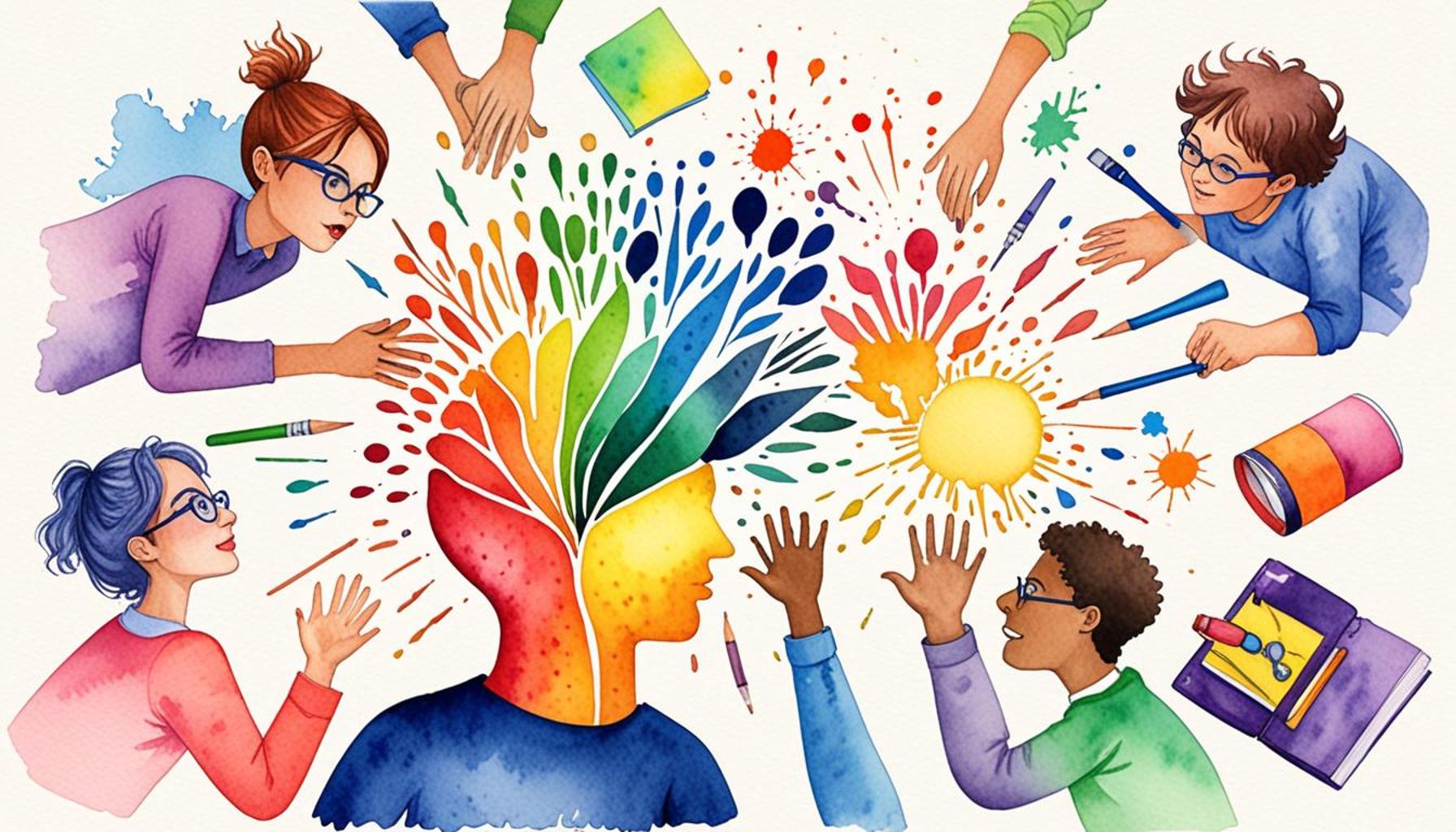Developing Resilience Through Adaptive Learning Techniques to Cultivate a Growth Mindset

Understanding Resilience and Adaptive Learning
In the context of today’s fast-paced and rapidly evolving society, possessing the ability to adapt and rebound from setbacks is more than just an asset; it is a vital life skill. Resilience is what empowers individuals to confront adversity head-on, transforming challenges into opportunities for growth and development. Alongside resilience, adaptive learning techniques create a solid foundation for ongoing personal and professional enhancement. Together, they cultivate a growth mindset, which is a belief that one’s abilities and intelligence can be developed through commitment and effort.
Understanding how to nurture these attributes is essential not only for individual advancement but also for enhancing collective welfare. In diverse environments like Nigeria, where educational systems face varying obstacles—from infrastructural challenges to resource limitations—leveraging adaptive learning techniques can play a pivotal role in shaping a resilient populace. This article outlines key elements that contribute to this transformation:
- Embracing Challenges: When individuals face and overcome difficulties, they foster personal growth. For example, students confronting academic obstacles often emerge stronger and more capable, developing critical thinking skills that will serve them well throughout life.
- Learning from Feedback: Constructive criticism is crucial for development. In Nigerian schools, encouraging students to view feedback as a tool for improvement rather than a personal attack can create a more supportive learning atmosphere.
- Persistence: Committing to persist despite setbacks is vital. Stories abound of Nigerian entrepreneurs who have weathered numerous failures before ultimately finding success, illustrating the importance of tenacity in achieving goals.
Beyond these foundational ideas, the implementation of adaptive learning techniques can significantly enhance educational experiences. Programs tailored to Nigeria’s unique contexts can:
- Encourage critical thinking and problem-solving skills through project-based learning, which often resonates more with students in real-world contexts.
- Foster collaborative learning experiences that tap into community resources, such as mentorship programs that connect seasoned professionals with young learners.
- Utilize technology to personalize educational journeys, allowing students to learn at their own pace and according to their interests while addressing the digital divide that exists within the country.
By integrating these strategies into educational frameworks, individuals can develop the mental resilience necessary to thrive amidst adversity. Ultimately, this article aims to explore how adaptive learning techniques can effectively nurture a growth mindset, offering practical examples and actionable insights that readers can employ in their own lives and communities. Understanding these concepts may pave the way for a more resilient future, capable of adapting to and overcoming the myriad challenges that lie ahead.
CHECK OUT: Click here to explore more

Embracing Challenges as a Pathway to Growth
At the core of developing resilience is the understanding that challenges are not merely obstacles to be avoided, but rather fundamental opportunities for growth. For many individuals, particularly in Nigeria, where social and economic conditions can present significant hurdles, embracing challenges can seem daunting. However, it is through facing these difficulties that individuals can unlock their potential and foster resilience. This process begins by changing the narrative around failure, viewing it not as an endpoint but as a stepping stone toward greater success.
One powerful example of this concept can be seen in the experiences of Nigerian students in crowded classrooms with limited resources. When these students confront academic challenges—be it understanding complex mathematical concepts or tackling language barriers—they hone not only their cognitive skills but also their emotional fortitude. Each struggle endured contributes to a sense of self-efficacy, enabling them to approach subsequent challenges with newfound confidence and determination.
The Role of Constructive Feedback
Another important component of cultivating resilience through adaptive learning techniques lies in the ability to learn from feedback. Feedback should not be perceived as criticism but as a vital tool for improvement. In Nigeria, where the educational environment varies greatly from urban to rural settings, creating a culture that values constructive feedback is essential. Educators can facilitate this by using adaptive learning strategies that emphasize individual progress and mastery over competition.
- Facilitating Open Dialogue: Encouraging students to ask questions and engage in conversations around their learning experiences fosters a supportive environment where feedback is easily shared and accepted.
- Celebrating Progress: Recognizing even the smallest improvements builds a positive mindset in students, helping them to appreciate feedback as part of their growth journey.
- Creating a Safe Learning Space: Environments where mistakes are viewed as part of the learning process encourage students to take risks and explore new ideas without the fear of judgment.
Ultimately, the incorporation of adaptive learning techniques into the educational framework serves to promote personal growth while enhancing emotional resilience. By facilitating an understanding that life is a constant learning process—replete with triumphs and setbacks—individuals can cultivate a growth mindset. This shift is especially significant in Nigerian contexts, where community ties and collective resilience play pivotal roles in overcoming challenges.
By actively embracing challenges and viewing feedback as a pathway to development, individuals can transition from a fixed mindset—where abilities are seen as static—to a growth mindset, where effort and perseverance are recognized as vital components of success. In the following sections of this article, we will delve deeper into practical strategies and examples of how these techniques can enrich our lives and empower a future generation capable of thriving in the face of adversity.
Developing Resilience Through Adaptive Learning Techniques to Cultivate a Growth Mindset
In the pursuit of personal and professional growth, the ability to develop resilience becomes essential. Adaptive learning techniques play a pivotal role in this journey, providing tailored strategies that address individual learning needs while fostering a robust growth mindset. By integrating these techniques into everyday learning processes, individuals can not only overcome challenges but also thrive in the face of adversity.
One significant advantage of adaptive learning is its ability to identify and adapt to learners’ strengths and weaknesses. For instance, a student struggling with mathematics can receive personalized resources and support necessary to build their competency, allowing them to view failures as stepping stones rather than setbacks. This perspective shift nurtures resilience, as learners begin to understand that effort and persistence can lead to improvement over time.
Furthermore, incorporating techniques such as self-reflection and goal-setting into learning practices encourages individuals to evaluate their progress and identify areas for growth. This practice not only enhances self-awareness but also equips learners with tools to navigate challenges effectively. By embracing difficulties and recognizing learning opportunities within them, individuals cultivate a more profound growth mindset that is crucial for long-term success.
Additionally, the community aspect of adaptive learning techniques cannot be overlooked. By engaging in collaborative learning environments, individuals benefit from diverse perspectives, which strengthens their adaptability. Through group discussions and shared experiences, learners can support one another, fostering a collective resilience that benefits the entire group.
As we delve deeper into the arena of developing resilience, the need for specific strategies and tools becomes increasingly apparent. The following table summarizes key advantages associated with adaptive learning techniques and their contributions toward cultivating a growth mindset.
| Advantage | Description |
|---|---|
| Personalization | Adapting learning pathways tailored to individual needs enhances engagement and effectiveness. |
| Self-awareness | Encouraging learners to reflect on their progress fosters a deeper understanding of their capabilities. |
| Collaboration | Promoting teamwork enhances problem-solving skills and builds a supportive learning environment. |
By understanding and implementing these advantages of adaptive learning techniques, individuals can significantly boost their resilience and develop a growth mindset, preparing them to face any challenges that come their way.
SEE ALSO: Click here to read another article
Fostering a Collaborative Learning Environment
Building resilience is not a solitary endeavor; it is often reinforced in the context of a collaborative learning environment. In Nigeria, where community plays a vital role in personal and professional development, fostering teamwork and peer support is essential to cultivating a growth mindset. Collaborative learning allows individuals to share diverse perspectives, thus enriching their problem-solving skills and emotional resilience. By engaging with peers, learners can draw strength from each other, transforming challenges into collective learning experiences.
Several strategies can be employed to promote collaboration among students, particularly within the Nigerian education system:
- Peer Tutoring: Forming small groups where students can teach one another not only reinforces their understanding of material but also builds confidence and mutual respect. Peer tutoring can be particularly effective in resource-limited settings where teachers may have large class sizes.
- Group Projects: Assigning collaborative projects encourages students to depend on one another, fostering a sense of shared responsibility. Despite the inherent challenges of differing work ethics and styles, students learn to navigate these difficulties, developing resilience through negotiation and compromise.
- Community Involvement: Integrating community service into the curriculum allows students to apply their knowledge in real-world contexts, creating bonds with local organizations. This helps children to recognize their potential impact, enhancing their ability to respond to challenges with optimism.
Moreover, adapting technology in Nigeria’s educational landscape can significantly enhance the collaborative process. Online platforms and digital tools can connect students across different regions, facilitating exchange and cooperative learning. Such technological integration encourages adaptability and allows learners to overcome geographical barriers, further supporting their development of resilience.
Mindfulness Practices as Tools for Resilience
In addition to adaptive learning techniques, incorporating mindfulness practices into educational settings can profoundly affect emotional well-being and resilience. Mindfulness encourages individuals to stay present and cultivate a positive outlook during difficulties, making it a perfect complement to the pursuit of a growth mindset. In Nigeria, where high-stress situations can often lead to anxiety and burnout, teaching mindfulness strategies can empower students to manage their emotions more effectively.
Some effective mindfulness techniques include:
- Breathing Exercises: Simple breathing techniques can help students calm their minds, reducing anxiety when faced with academic pressures or personal challenges.
- Gratitude Journals: Encouraging students to maintain gratitude journals can shift their focus from stressors to positive experiences, fostering an optimistic outlook essential for resilience.
- Guided Visualization: This technique helps students imagine themselves succeeding in their tasks, building confidence and determination to confront challenges.
Studies have shown that implementing mindfulness in educational contexts leads to enhanced emotional regulation, improved focus, and increased resilience, all pivotal for cultivating a growth mindset. As schools in Nigeria begin to adopt these practices, educators must emphasize their holistic benefits to support students in navigating life’s complexities.
By nurturing collaborative environments and incorporating mindfulness practices within adaptive learning frameworks, we can lay the foundation for building resilience among future generations. This commitment to a growth-oriented education empowers students, enabling them to face life’s challenges head-on with unwavering confidence.
LEARN MORE: This related article may interest you
Conclusion: Embracing Resilience Through Learning
In an ever-evolving world, the ability to adapt and overcome challenges is paramount, particularly for the youth in Nigeria. By embracing adaptive learning techniques, educators and students alike can effectively cultivate a growth mindset that fosters resilience. The strategies discussed, including collaborative learning environments and mindfulness practices, serve as valuable tools that empower learners to navigate both academic and life challenges with confidence and optimism.
As we consider the role of peer support and community involvement, it becomes clear that learning is enhanced when individuals unite to share knowledge and experiences. The integration of technology further enhances this collaborative spirit, breaking down geographical barriers that might hinder cooperative learning. This interconnected approach not only enriches educational outcomes but also instills a sense of belonging and purpose among students.
Moreover, incorporating mindfulness practices into the learning experience can lead to profound emotional regulation and improved focus. Such techniques not only provide students with the means to cope with stress and anxiety but also reinforce a positive outlook essential for developing resilience. As we continue to prioritize these adaptive learning strategies, it is crucial to recognize their potential for transforming the educational landscape in Nigeria and beyond.
Ultimately, by nurturing resilience through innovative learning approaches, we prepare our future generations to face life’s uncertainties with courage, adaptability, and an undeniable growth mindset. It is time to invest in a resilient future, where every student is equipped to turn challenges into triumphs.



